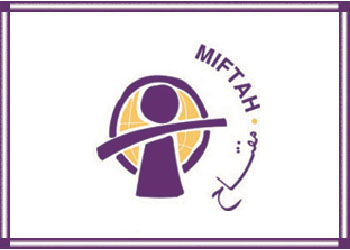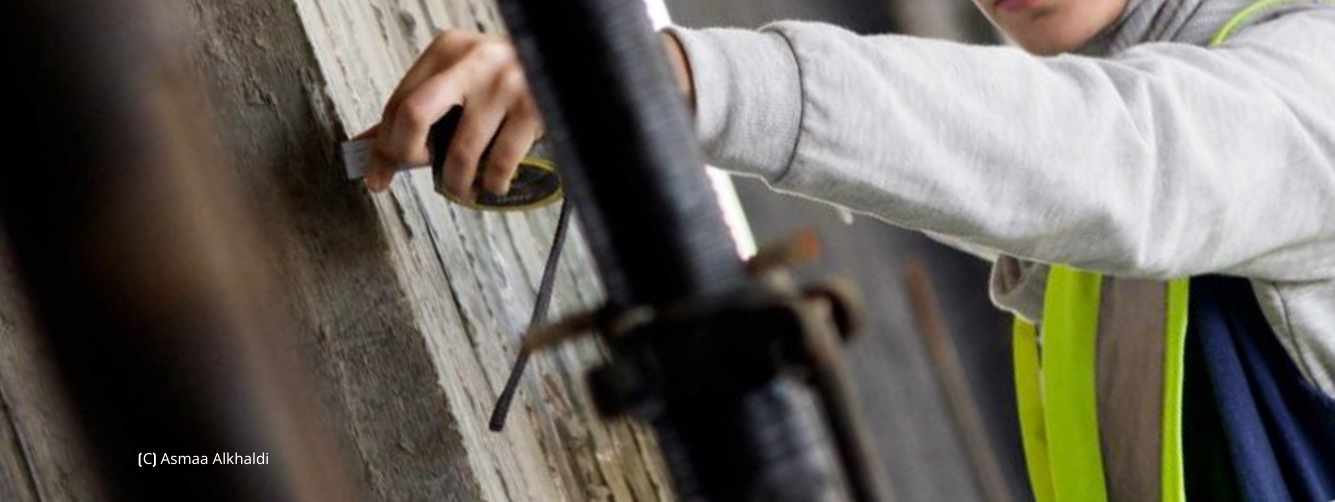
Ramallah – Sheikh Barakat Ziad Hijazi Tamimi, Imam of the Khaled Bin Walid Mosque in Hebron says he is now able to include issues and problems that strike at the core of his community in his daily and weekly lessons and Friday sermons, issues mostly avoided by imams and preachers given their social sensitivity. In particular, these issues pertain to disputes or problems between men and women.
He says the change came after recently participating in a number of training courses conducted by MIFTAH in the field of health and reproductive rights and gender-based violence, which targeted imams and female preachers in various districts, including Hebron. The courses were part of MIFTAH’s UNFPA-funded “Support Women Protection” project.
Female preacher Sajeda Omar Shurafa had a similar experience. Shurafa is a preacher in the Waqf Directorate in Nablus who also participated in MIFTAH’s training workshops She says the capacity building workshop offered her broader knowledge and skills in broaching and raising awareness on social issues related to marital and family relationships in a way that guarantees family stability and social security and reduces domestic violence.
Tamimi said while his participation reaped many benefits, one of the most important of these is that it broadened his sphere of knowledge and information in the field of health and reproductive rights, especially women’s rights and gender-based violence and the importance of renouncing and combatting it. “It created considerable interaction between us and our target audiences. We hope the outreach scope widens even further so we can target more social sectors beyond confining them to lessons in the mosque; we want to branch out to other institutions, clubs, associations, and youth centers so as many people as possible can benefit.”
Tamimi continues that while there were those who were convinced of their message and connected with them, others had reservations. “Still, at least there were discussions and acceptance of what we proposed in terms of social issues and awareness on topics that affect the daily lives of Palestinian families, especially women and children.” He said he hoped MIFTAH would also expand on the issues for discussion, which were posed by the target audience who responded positively to the training.
Sajeda Shurafa, had a similar experience in regards to the impact of the training. “Now we broach many subjects, most importantly, GBV and women’s health and reproductive rights,” adding that these subjects built on previous rounds of training in 2016. “Today, we are more professional and accurate in our message during our sermons and interact with a large sector of society, women. We also hope for more participation from men because their contribution will help create solutions to many of the problems and will give families a more solid ground which will in turn give them more self-confidence.”
Sajeda believes working on the ground would be more effective. “We need to integrate and become more involved in our society’s problems and try to find solutions to them because this will contribute to a more stable society and regulated family life,” she said. Therefore, she continued, “Our role is no longer confined to mosques; our message does not stop there but has spread to schools and organizations and to any place we can reach.“ Sajeda maintained that MIFTAH’s training boosted their ability to broach and interact with problems more efficiently and to contribute to finding solutions to them. “Today we are confronting these challenges head-on and are working to overcome them right away or through coordination with the relevant parties to provide the necessary support for families, women and children.”







